Clemente Guzman Saenz


This interview was done at 1224 Allende St.at my grandfathers house at about 3:30pm Sunday, day after his birthday, and was conducted in spanish but translated by my aunt Bertha Guzman. My grandfather Clemente Guzman Saenz was born on September 29, 1937 on a ranch in Allende Nuevo Leon in Mexico to the parents of Clemente Guzman Rodriguez and Nazaria Saenz Saenz. He grew up on a ranch and only got a sixth grade education before he had to start working to help support the family. He and his family of two sisters named Evangelina and Concha and three brothers: Miguel, Humberto, and Pedro, along with his parents picked oranges by the day for anyone that needed work done in the area. Throughout his youth he came to the U.S. and worked in many fields with his parents and an uncle. As a teenager he got his VISA and inlisted to come work in Michigan under contract along with many othere places across the United States from picking cotton, cucumbers, and other crops. Later he worked as butcher for a Company called Swift & Co. for eight years, and then he joined a labor union and worked as a union laborer for many construction companies until he retired. In 1962 he married Gloria Guzman Fernandez and they had four daughters: Gloria, Evangelina, Felicitas, and Bertha, and five sons: Rafael, Miguel, Felipe, Clemente, and my dad Raul. My grandfather now likes to write songs and is interested in dowsing for treasures and doing that sort of thing.
How did you learn how to drive?
I used to feed the deer on a mule, so I had the sacks of corn on the sides, and then one time I got off the mule to feed the deer and the mule ran off, and I had to walk back. That was the only time I did that. Clemente: "but the first time, the second time can't because I tied very good." That's when the owner recommended the truck, just one gear.I would just drive in one gear because I didn't know any of the gears, and then I got stuck on a tree, I didn't hit the tree but it was right in front, so I had to figure out how to get in reverse. He used to go very slow, that's what grandma says.

This Photo was taken in Doss,Texas in May of 1967 at the ranch where Clemente worked.
When did you permanently Move here [San Antonio]?
There was a time in the 70ís when the government put a freeze on my pay raise increase, so at some point I got everything back (when they took hte freeze off) and it was like seven hundred and something dollars (which he used to buy his current home). I also used that money to bring my mom over here.
How hard was it to make the move here and adapt to living here.
It wasnít that hard because I would entertain myself with work.
Bertha: I also asked him about how he felt about leaving his family behind.
Well . . . there just my brothers and sisters, I brought my mom in the 70ís so . . .
it wasent too hard for me.
How did you family feel about you leaving to the United States?
My parentís wern't to happy because at that time my grandpa had lost part of his leg so I would help out a lot, see I was at home so when ever they needed anything I was there, my brothers were musicians so they were never there because they would go somewhere else to play.
What kind of work did you do before you got married when you would come to America?
I had a little hoe and would separate the beats [in the fields] in Michigan. Clemente:"very small, because gotta get close for look at the plant because gotta have one not two because grow big for sugar, and next time go for cleaning up the beans over there".
Before that I used to get oranges from the trees, in Michigan for three months and for three months I would pick beans and the rancher would let me take home beans to eat.
Bertha: What age did you start working at?
eight years old.
I first started working when I was eight and would sell cheese and vendor stuff, and then I started getting older and would buy soda bottles for five pesoís and sell them back to stores for twenty pesoís, at one time there was this house that had a whole pile of beer bottles but my dad would only give me a few pesos so I would have to buy a few and then sell them, then go back and buy some more little by little. Those I would buy for twenty pesos and sell them for forty.
I also worked at a store where I once found a hundred peso bill and returned it, now I think that it was a test or something to see if I was moral or something.
How much did stuff cost when ever you worked on the ranch?
Ice-cream was like five cents at the time when they had buffalo pennies and I donít know about milk because we had a cow.
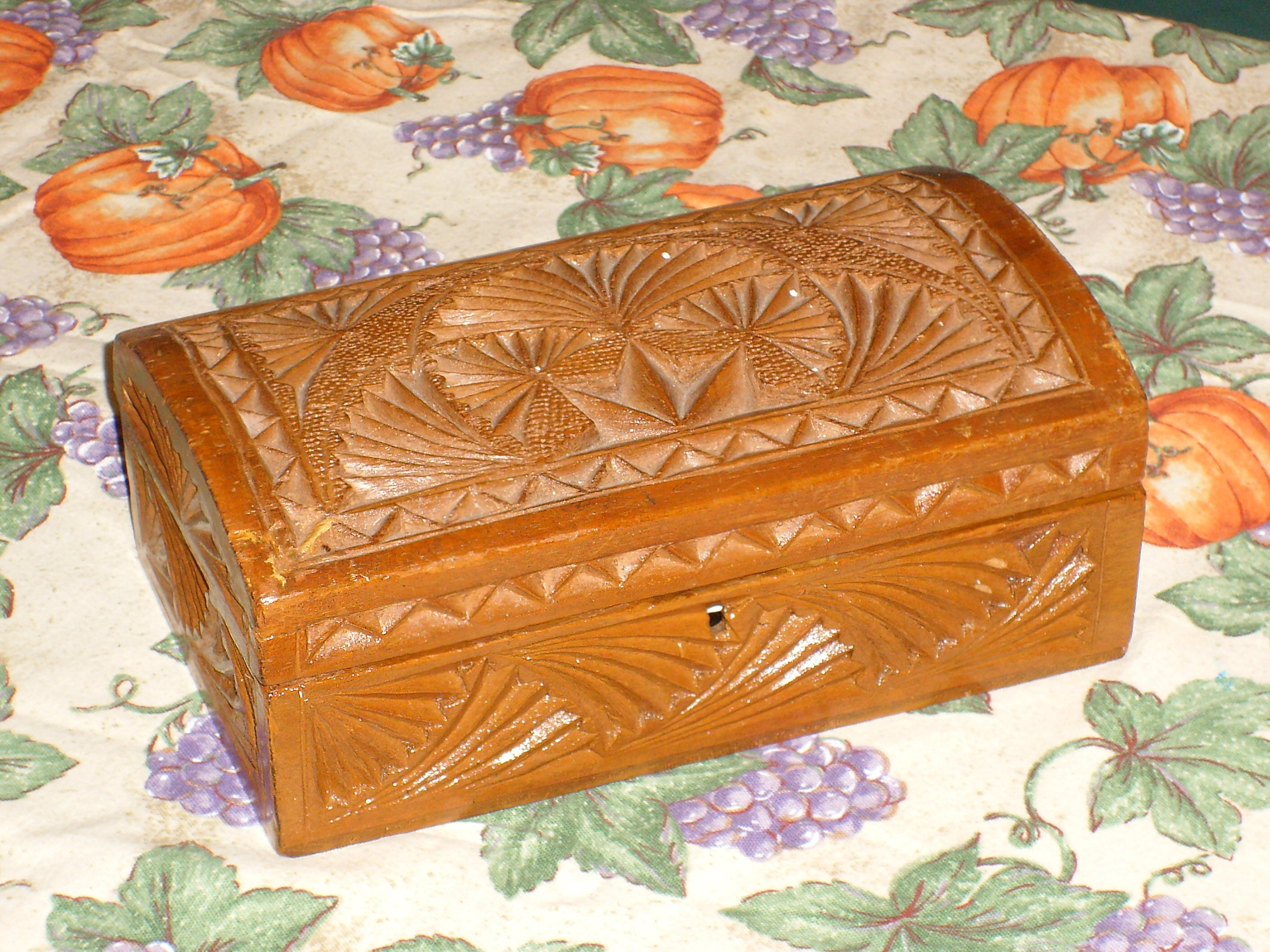
What is a typical day in your childhood?
We would go hunting and fishing, we would also get honey from the bee hives.
We would do this by using a long wooden stick to get the honeycomb and then we would build a fire at the end of the wood, we would then shake the hive and the bees would walk down the stick at us but the heat from the fire would make them fly up so we could get the honey. We would also do this with bumble bees buy building a fire under the nest and shaking it so the bees would fly out but the fire would singe there wings so they couldn'tít fly. Then we would make a broom out of sticks and sweep them away and take the honey.
How did you learn English?
I learned some from the Germans when I worked with them and was once asked if I was German by a nurse because I talked like them in broken English with a German accent because they had to learn English also and I learned it from them.
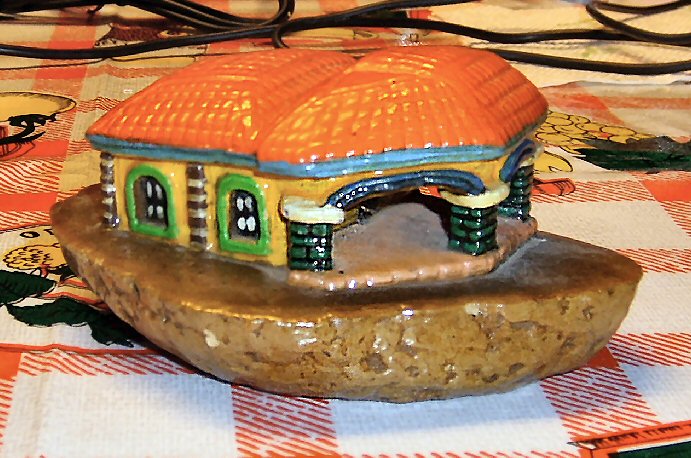
Above is an example of the toys my grandfather would make when he was a child by cutting and carving rocks with handsaw blades although this rock piece was not made by him.
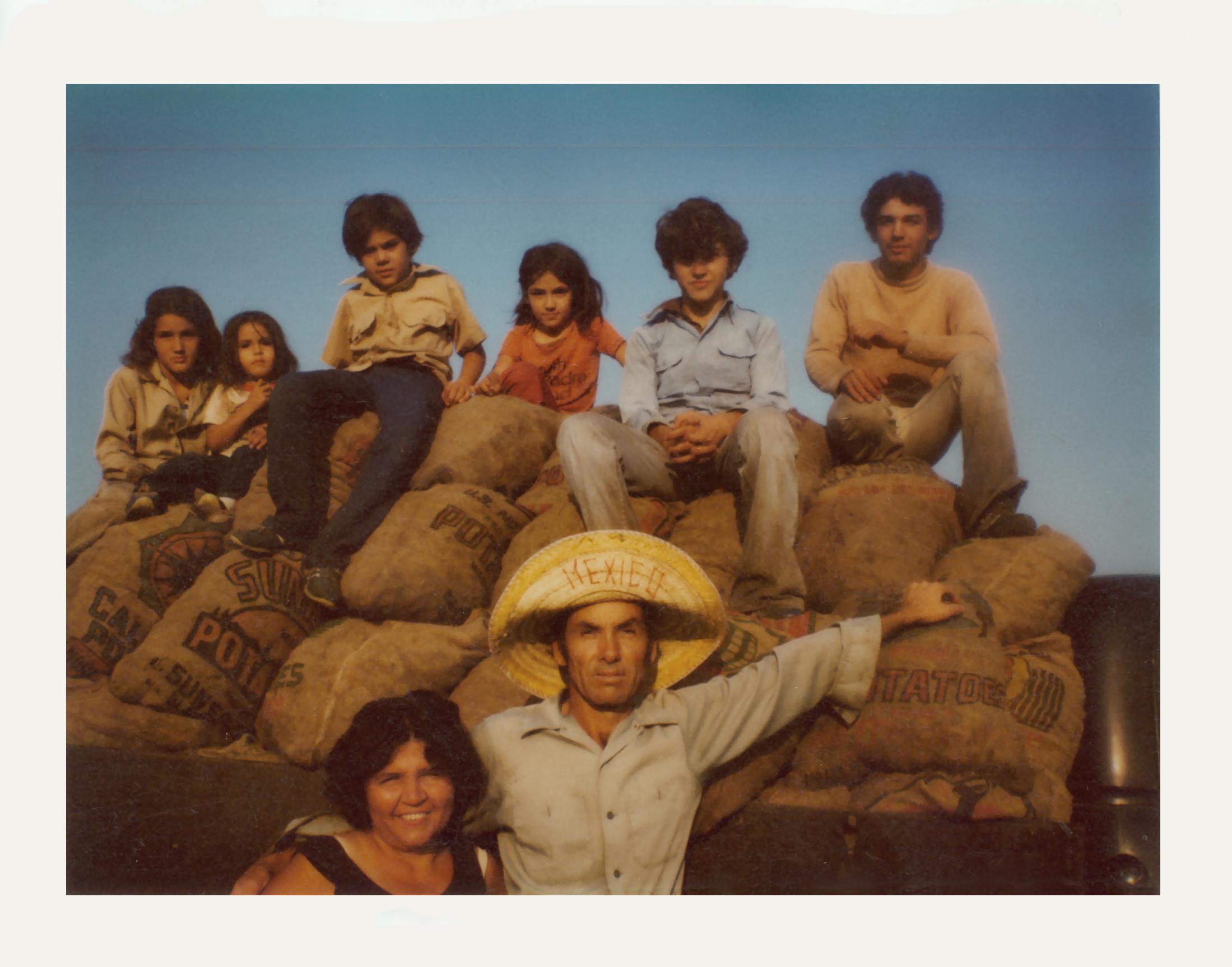

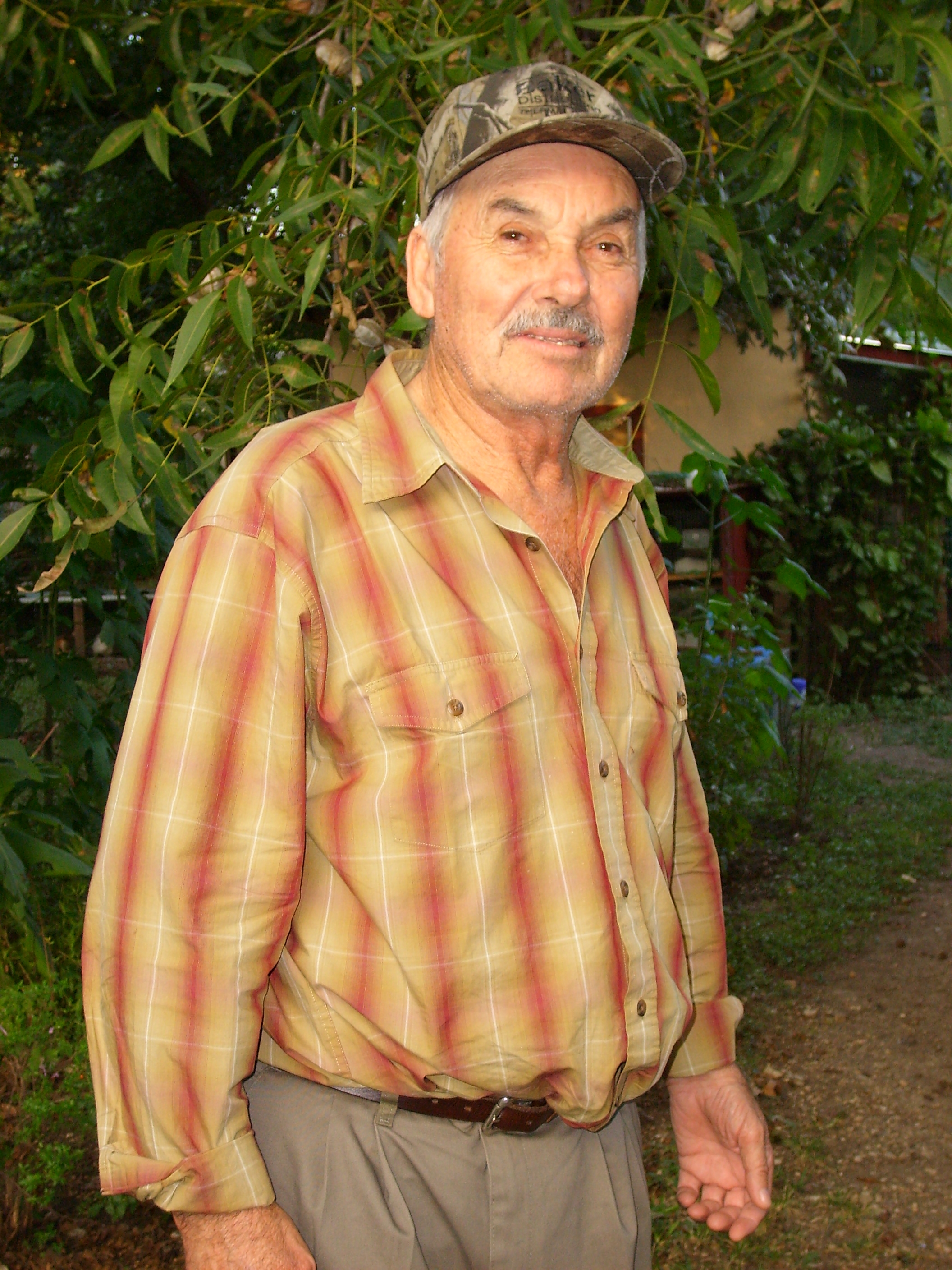
Is there anything in this interview that I didnít ask that you want to ask?
I would make my own toys out of rock, one of my friends bought a car I made for one peso and he still has it and wonít give it to his grand children because he still likes it. I carved it out of rock with a handsaw blade because I had lots of time as a child. There are lots of people out there that have talent they just donít have the education because they donít have money.

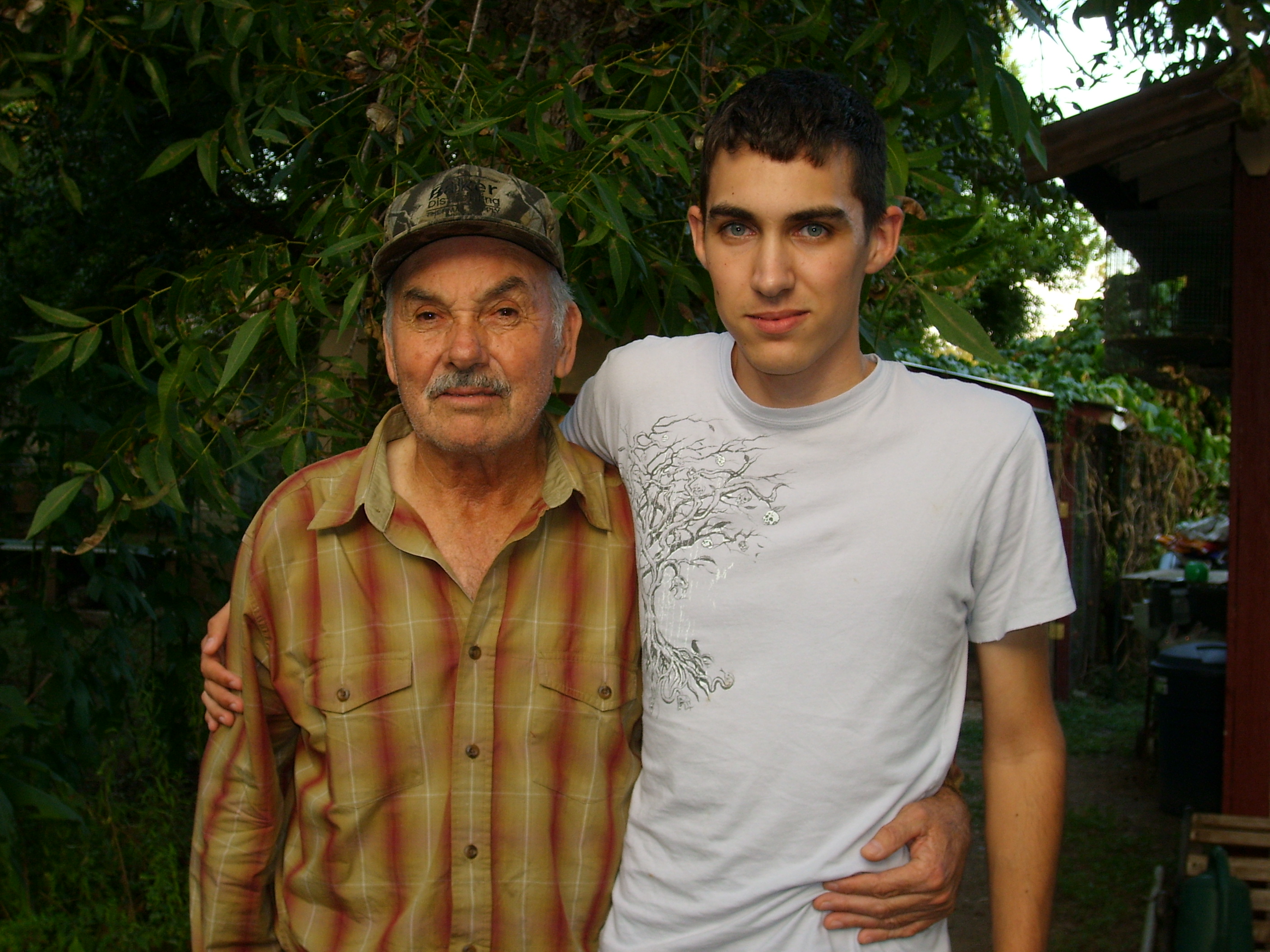
The Handbook of Texas Online is a multidisciplinary encyclopedia of Texas history, geography, and culture sponsored by the Texas State Historical Association and the General Libraries at UT-Austin. It was produced in partnership with the College of Liberal Arts and the General Libraries at the University of Texas at Austin. Copyright © The Texas State Historical Association.
Perry-CastaŮeda Library Map Collection. Geographical and historical maps of continents, countries, counties, cities; maps relating to history and current news events. University of Texas Libraries.
Cost-of-Living Calculator. The calculator uses the Consumer Price Index to do the conversions between 1913 and the present. The source for the data is the Bureau of Labor Statistics. The Consumer Price Index reflects the cost of items relative to a specific year. The American Institute for Economic Research. P.O. Box 1000. Great Barrington, Massachusetts. 01230.
Nuevo Leon Map. An online interactive site on maps of Mexico that allows you to take sections of the map and zoom in on them.
Small Town Texas Projects. Palo Alto College students Justine Javior and Erika Leija completed their project on the town of Doss, Texas. This Small Town Project was completed in the Fall semester of 2006 as a requirement for Assistant Professor of Robert Hines's History 1302 class.
Photographs and/or documents on this website were provided by Clemente Guzman and Raul Guzman. The newest photos are of my granfather and I, which were taken on my digital camera on the day of the interview. The older photos are of my grandfather Clement, his wife Gloria, and some of there children depending on whether or not they were born yet. Those Photos were provided by my dad Raul who is one of Clemente's sons and were on his computer because there were given to him so he could try to touch them up because there were fading and cracking.